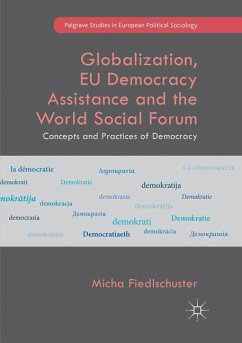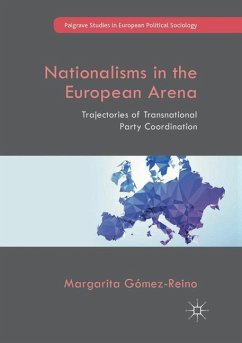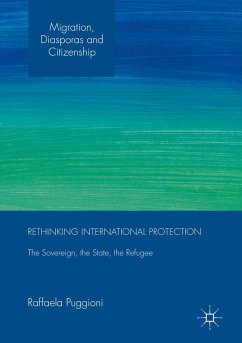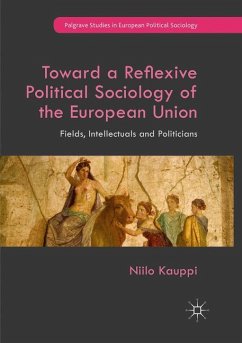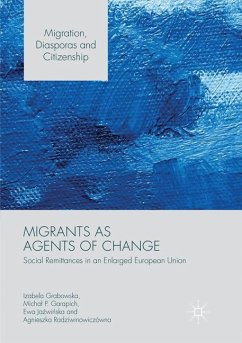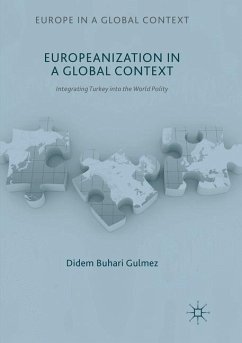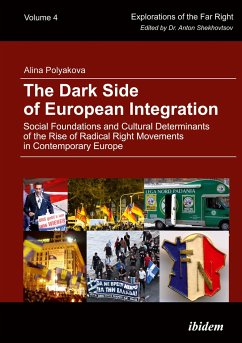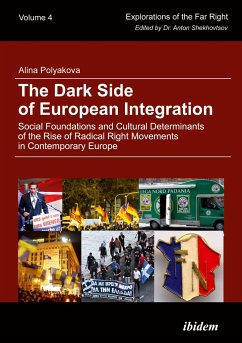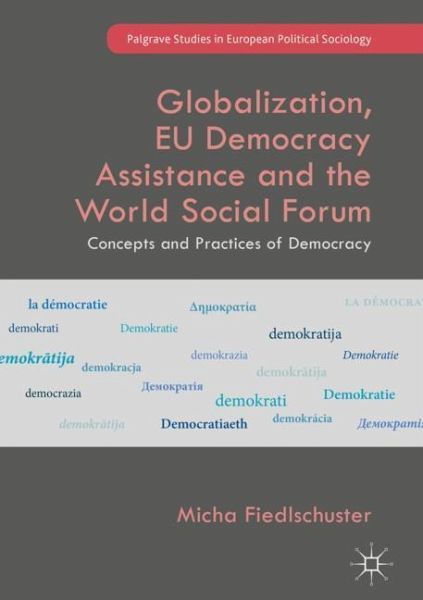
Globalization, EU Democracy Assistance and the World Social Forum
Concepts and Practices of Democracy
Versandkostenfrei!
Versandfertig in 6-10 Tagen
83,99 €
inkl. MwSt.
Weitere Ausgaben:

PAYBACK Punkte
42 °P sammeln!
Seeking to extend the debate on the diversity of democracy, this book provides the reader with a comprehensive account of how two different global actors, the European Union and the World Social Forum respond to the challenges of globalization with various models of democracy and modes of cooperation at the transnational level.Analysing EU democracy assistance in the EU's neighbourhood, Fiedlschuster sheds light on the complex relationship between the EU and civil society. Although the EU perceives a vital civil society as crucial for democracy, its mix of a governance approach with deliberati...
Seeking to extend the debate on the diversity of democracy, this book provides the reader with a comprehensive account of how two different global actors, the European Union and the World Social Forum respond to the challenges of globalization with various models of democracy and modes of cooperation at the transnational level.
Analysing EU democracy assistance in the EU's neighbourhood, Fiedlschuster sheds light on the complex relationship between the EU and civil society. Although the EU perceives a vital civil society as crucial for democracy, its mix of a governance approach with deliberative and participatory democracy will unlikely result in a citizen-centred democracy.
The book also provides a compelling account of the World Social Forum and its participants interviewed for this work attempt to answer one of the challenges of contemporary globalization: How can civil society pursue democratically global social change? Fiedlschuster skilfully deploys varioussociological approaches not only to analyse concepts and practices of democracy by transnational activists but also to throw light on the tensions between democratic idealism and anti-democratic tendencies in the Forum. This book will be of wide interest to students and academics, including those working within political sociology, European Union politics, and globalization.
Analysing EU democracy assistance in the EU's neighbourhood, Fiedlschuster sheds light on the complex relationship between the EU and civil society. Although the EU perceives a vital civil society as crucial for democracy, its mix of a governance approach with deliberative and participatory democracy will unlikely result in a citizen-centred democracy.
The book also provides a compelling account of the World Social Forum and its participants interviewed for this work attempt to answer one of the challenges of contemporary globalization: How can civil society pursue democratically global social change? Fiedlschuster skilfully deploys varioussociological approaches not only to analyse concepts and practices of democracy by transnational activists but also to throw light on the tensions between democratic idealism and anti-democratic tendencies in the Forum. This book will be of wide interest to students and academics, including those working within political sociology, European Union politics, and globalization.



